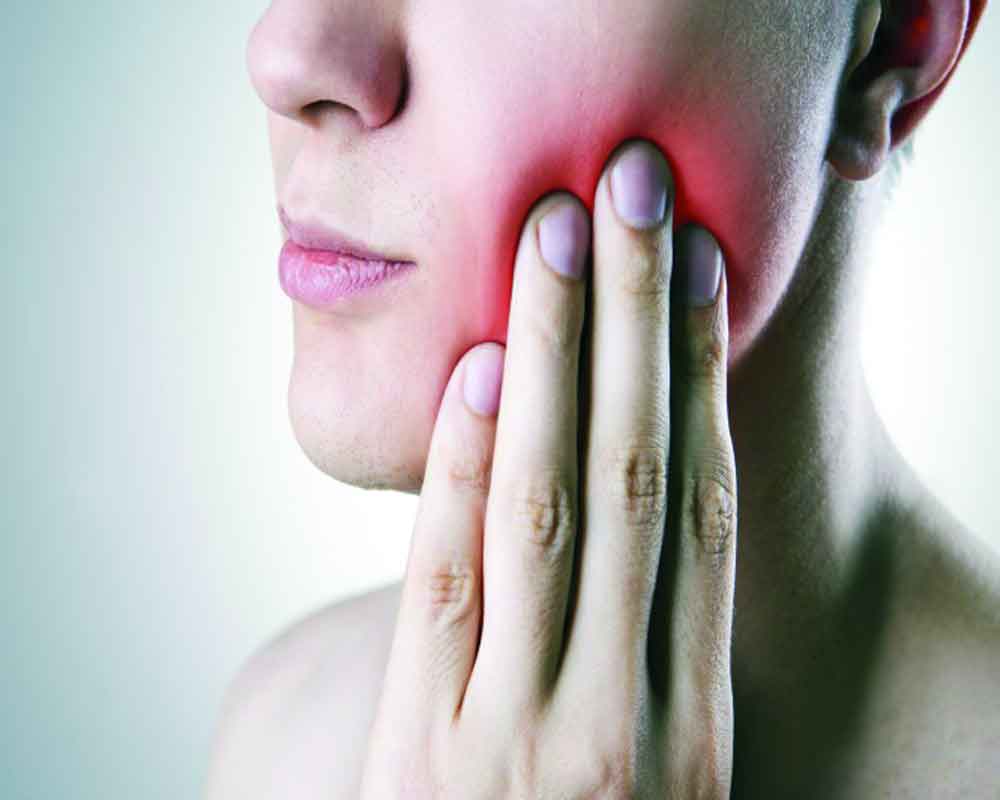Dr Amitabh Gupta is HOD Neurosurgery at Batra Hospital, New Delhi
Pain in the face, jaw and the nose area can be devastating, and such symptoms should seldom be ignored. This intense, stabbing, electric shock-like pain can be an underlying cause of some major complication in the head. The pain typically involves the lower face and jaw, although sometimes it affects the area around the nose and above the eye and is caused by irritation of the trigeminal nerve, which sends branches to the forehead, cheek and lower jaw. It usually is limited to one side of the face.
The trigeminal nerve is the fifth of 12 pairs of cranial nerves in the head. It is the nerve responsible for providing sensation to the face. One trigeminal nerve runs to the right side of the head, while the other runs to the left. Each of these nerves has three distinct branches. After the trigeminal nerve leaves the brain and travels inside the skull, it divides into three smaller branches, controlling sensations throughout the face.
Trigeminal Neuralgia — Prevalence: While the disorder can occur at any age, it is most common in people over the age of 50. The National Institute of Neurological Disorders and Stroke notes that trigeminal neuralgia is more common in women than in men. Additionally, there is evidence that the disorder runs in families, likely as a result of an inherited blood vessel formation. Hypertension and multiple sclerosis also are risk factors.
The most commonly reported cause of jaw pain is temporomandibular joint disorder (TMD). The condition affects up to 12 per cent of people. Nearly 5 per cent seek medical treatment due to the severity of the problem. Women of childbearing age are most commonly affected by TMD.
Pain can also be caused by lifestyle-related factors, including emotional stress, sleep disturbances, a lack of certain nutrients, or tiredness. The cause of the pain usually is due to contact between a healthy artery or vein and the trigeminal nerve at the base of the brain. This places pressure on the nerve as it enters the brain and causes the nerve to misfire.
Lifestyle strategies to reduce jaw pain long-term.
Stress reduction: Try stress-relieving techniques to reduce jaw clenching like yoga, meditation and journaling.
Avoid chewy foods.
Avoid caffeine: Avoiding large amounts of caffeinated coffee and tea may help reduce your jaw pain over time, but you may initially feel muscle tension from caffeine withdrawal when cutting it out of your diet.
Medical treatment: Most doctors will first recommend non-invasive treatment methods for your jaw pain. If you still have jaw pain after trying these methods, you should talk to your dentist. You may need further interventions to find relief for your pain.
Mouthguard: A mouthguard is a plastic dental protector worn on your upper or lower teeth that’s custom-fitted for your mouth. Although you can purchase one at a pharmacy, a dentist will make you one that may fit better and last longer. Wearing one at bedtime can help stop you from unconsciously grinding your teeth.
Jaw surgery: In very rare instances, a doctor will recommend jaw surgery to correct TMD problems. This treatment is usually reserved for people with severe pain and pain that’s due to structural problems in the jaw joint.
The following tests may help them to find out more about the cause of jaw pain, including:
- Physical exam, including assessment of the nerves, neck bones, jaw, mouth and muscles.
- Certain laboratory tests, such as an erythrocyte sedimentation rate blood test, used in the diagnosis of conditions involving pain.


























